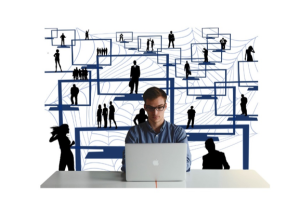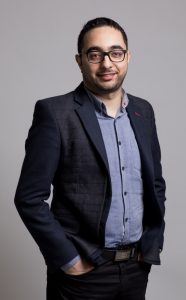On a bright morning of 24th November, 2017, enthusiasts and Gurus alike gathered within the halls of Sterlings’ Mac Hotel, Bengaluru to herald the beginning of a new revolution, Young Professionals in Space! YPinSpace as an event not only offered students the opportunity to be involved in the intricacies of the New Space era in India and abroad but also to develop an understanding and penchant for all-things-space. And the attendees weren’t disappointed!
Young Professionals in Space had a wide array of talks and sessions by eminent professors and scientists that educated and motivated the attendees. The lineup had stalwarts like Dr. Quenton Bonds (Research Scientist, Goddard Space Flight Center, NASA), Professor Steve Reising (Colorado State University, USA), Professor Ravinder Dahiya (University of Galsgow), Lorenzo LoMonte (AESS) and many more. We are delighted to have support from many IEEE societies – IEEE Geoscience and Remote Sensing Society, IEEE Systems Man and Cybermatics Society, IEEE Signal Processing Society to name some of the diamond sponsors.
The IEEE Young Professionals in Space Bootcamp took place from Nov 24-26, 2017 in Bangalore. The program was designed to involve, innovate, and inspire participants through sessions focused on spacecraft design. The involvement was achieved through both hands-on activities assembling and testing a prototype for a CanSat and interactive discussions while learning about spacecraft subsystems, amateur radio, and payload design. Even with a sold out crowd of more than 150 participants, the instructors were able to engage individuals to think beyond their prototype, apply their knowledge to future projects, and find innovative solutions through space technologies. More importantly, the weekend was design to inspire young professional by sharing personal experiences, lessons learned, and ambitions.
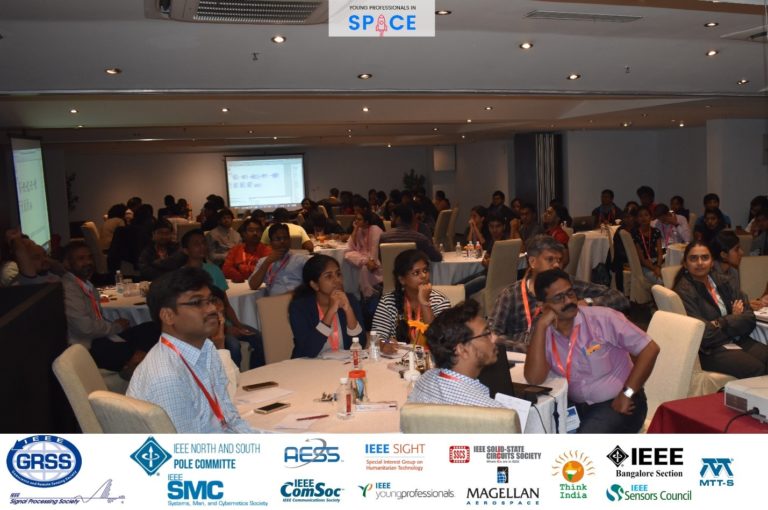
The first day focused on establishing a baseline for subsequent activities through three sessions on space projects, spacecraft subsystems, an overview of CanSats, and a short presentation by Xovian on their journey as a startup company in the Indian space industry. The discussion on space projects started with a discussion on why we go to space and the benefits of humanity. Then, it jumped to a high level overview of how space projects are taken from a mission concept through various phases of the design, implementation, testing, launch, operations, and decommissioning. This contrasted the traditional waterfall method applied to large space programs with alternative iterative agile processes highlighting some of the differences related to managing requirements, project management, and risk management. The overview of spacecraft subsystems highlighted the key functions of each subsystem, typical components, and design considerations. In addition, this session highlighted many of the inter-subsystem relationships and trade-offs that can drive the design process. In the last session, the students received a short overview of CanSats highlighting the similarities and differences with larger spacecrafts. Finally, each pair of students received a CanSat kit and spent some time identifying the components and learning about how it would work once it was assembled. In the presentation on startups, the founders of Xovian shared how the company got started, current projects, challenges, and future plans that served to motivate participants to think beyond the bootcamp.
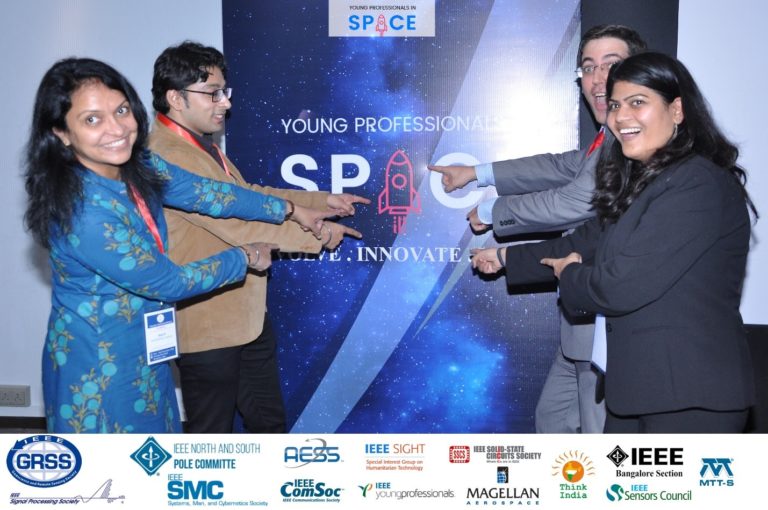
The second day focused on hands-on activities. The morning began with a presentation on Amateur Radio that included some theory on communication systems, antenna design, and legislations. The instructors instrumented many live demonstrations aimed at visualizing the principles discussed using software defined radios and inspired many students to seek more information to get their license. The remaining time was spent assembling the CanSat kits consisting of a spacecraft and a ground station. The spacecraft was designed around an Arduino processor with a sensor board and a transmitter board to send wireless telemetry data at 433 MHz frequencies. The receiver board consisted of an Arduino to process packets, send them to a serial port on a laptop, and plot them in real-time. The participants soldered the components for each board, programmed the boards, and then tested them by reading information from photodiodes and thermistors to transmit and plot on their receiving stations.
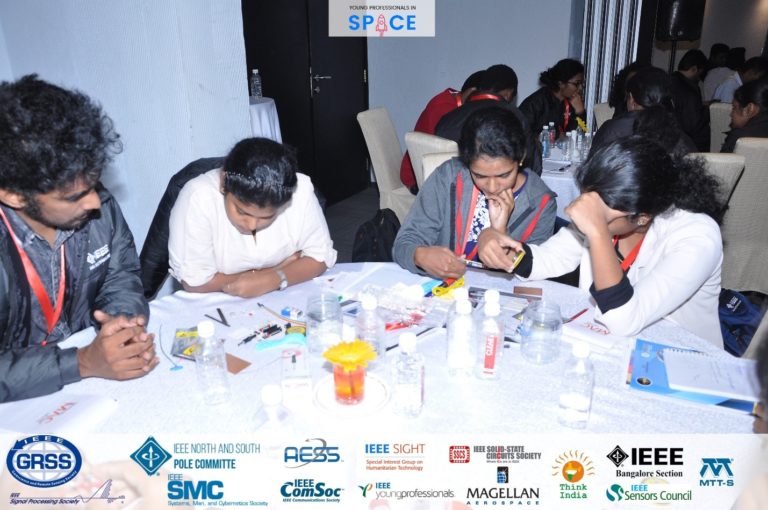
The last day started with a presentation from Magellan Aerospace focused on large spacecraft missions and the associated challenges of programs spanning many years from concept to launch. This presentation was followed by a presentation focused on Command and Data Handling Systems and Flight Software where the instructor highlighted principles, heuristics, and design philosophies that are seldom written down in textbooks. The discussion lasted longer than planned as it spawned many questions and conversations with participants who shared their own experiences, challenges the status quo, and proposed innovative solutions utilizing emerging technologies. After an engaging discussion on design principles, the focus shifted towards testing. The presenter provided an overview of unit, integration, and system level tests, while dwelling on environmental testing sharing experiences from both CubeSats, SmallSats, and Large Satellite missions. The afternoon featured a guest speaker from NASA who provided an overview of payload designs, highlighting how the instrument design process differs from the design of a spacecraft bus.
The last session of the bootcamp was not originally planned, but was added to address the most common questions from participants on what to do next and what kind of opportunities were available. In this presentation, Mr. Tushar Sharma shared his experience, highlighted key opportunities for internships and pursuing graduate degrees. The session inspired participants and served as a perfect closure to a busy and exciting weekend.
Overall, the first offering of the YPinSpace bootcamp was very successful and there was lots of positive feedback.
To enthrall the attendees with excitement and enlighten them about the upcoming opportunities in space exploration, a dedicated session was conducted by the dignitaries from Startups across India. It was a great experience for everyone present there and the chance to hear the first hand experience from the people dealing in the frontier of new space. It was conducted on 24th and 25th November 2017 at Sterlings’ Mac Hotel, Bangalore, India. The session kicked off with talks by Mr. Pradeep Basu, Chief Operating Officer at SatSure Limited. He shared his experience about working at Satsure and the area of focus of the organization and the unique product proposition that SatSure offered. By Working closely with the government and financial institutions, SatSure aims to ensure that the country’s agricultural growth corresponds to food security along with financial security of farmers. The use of Bigdata and Machine learning by this organization reinforced the belief that Technology is an enabler of change and can be used for doing good in the society. The young minds sitting there were deeply overwhelmed by connection of space programs by Startups like SatSure with National Development. There was an open discussion after his talk that encouraged people to resolve their queries and enhance their knowledge.
After this interesting talk there was the much awaited session by Mr, Gadhadhar Reddy, CEO at Nopo Technologies is a passionate Entrepreneur who was representing the ideation behind NoPo. NoPo is leveraging an advanced material called Single Walled Carbon Nanotube in there venture. NoPo makes some of the best Nanotubes in the world. He also shared details about some of the ongoing projects like Water filters that can extract pure water from highly contaminated sources in one stage, X-Ray Machines that fit inside a smart phone, Propulsion systems that will enable silent & efficient flying cars. There were questions from the listeners about the challenges faced by a StartUp in this domain which were answered to the depth by our eminent speaker.
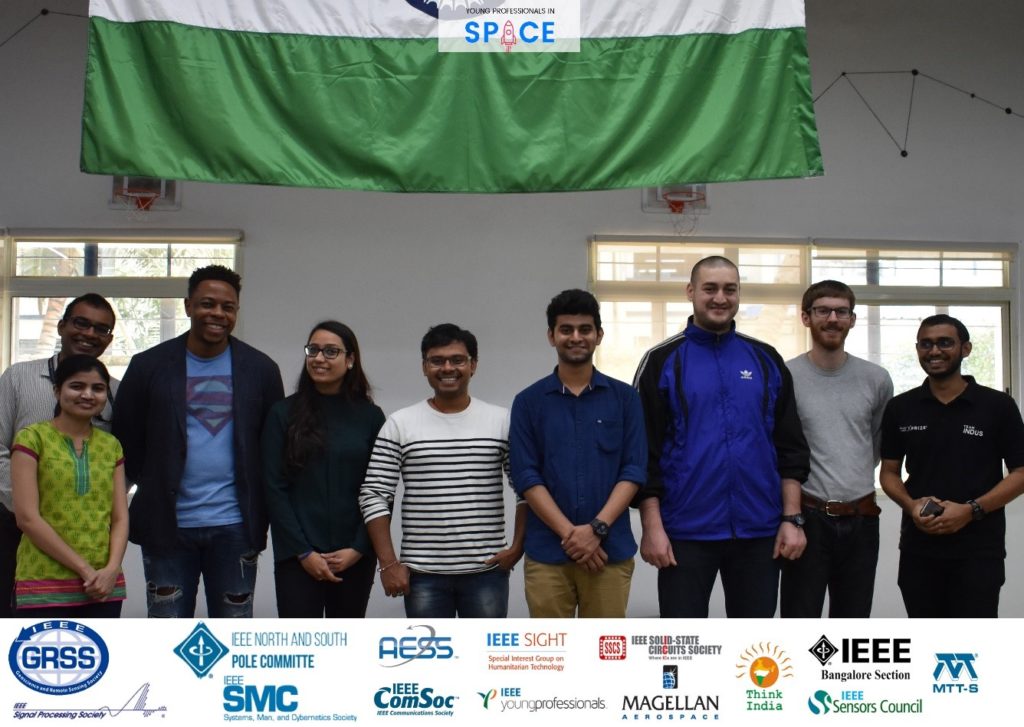
After this energizing session was the turn for Rohan M Ganapathy, CEO and one of the full time directors of Bellatrix Aerospace. He is the Principal Project Architect of India s first Microwave Electric Propulsion system which received critical acclaim from scientists over the world. He shared his experience and challenged faced by him during the funding days and shared the various opportunities that one can explore in this domain. Next was the turn to get enlogtened from the talk by Dr. Prasad H L, Founder, Chairman and CTO at Astrome Technologies. He chose the topic high speed broadband internet from space which is also the domain of his company. He discussed about how they are developing next generation technologies that will have high impact on the lives of people. High-speed broadband which is currently limited to urban areas, will be made location independent by our Advanced High Throughput Satellites (HTS). Our Next speaker was Ms. Divyanshu Poddar who was representing India’s first private sector foray into Model Rocketry, Rocketeers. She talked about journey to bringing the first solid fuel powered rocket science to the students in India. Rocketeers produces solid motor fuel powered rockets as a medium for education in the form of workshop on Model Rocketry in India. The inquisitive listeners asked her about the future plans and others challenges faced by the organisation during their tremendous journey.
After the rockets and the space it was the time to discuss about low cost sustainable solutions in satellite fabrication, which was very well taken up by Mr. Raghav Sharma representing Xovian Technologies. He discussed about various domains like CANSAT, Sounding Rockets, High Altitude Balloons, Satellite components manufacturing. To understand this area was very new for all our listeners. The session was concluded by Ms Deepana Gandhi who is working as a Guidance Navigation and Control Engineer in Team Indus. Team Indus is a unique jewel in the New Space ecosystem in India. They are the only Indian team attempting to land a spacecraft on the moon by participating in the Google Lunar X contest. They were also represented by Ms. Bhagyashree that put forward the marketing aspects of such an endeavor. They were quick and enthusiastic in answering the questions raised by the attendees which varied topics like funding, IPR and the challenges involved in running a startup like this.
Young Professionals in Space offered a unique opportunity to the attendees to hear about the trials and triumphs of these hustlers in the arena of new space in India.
When the sun set over this year’s edition of YPinSpace, there was a sense of pride in all the volunteers for having pulled off such a behemoth of an event but most importantly there was a feeling of achievement on the face of every attendee for they managed to cross the first hurdle of their journey into New Space. At the offse, goodbyes were said but promises were made. Promises to see each other again- in Barcelona!




